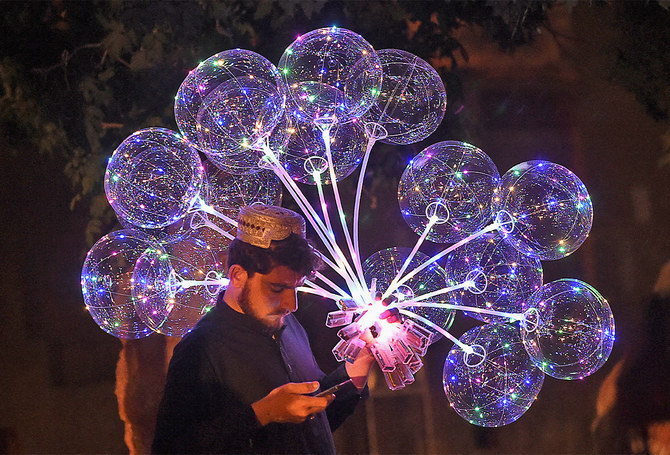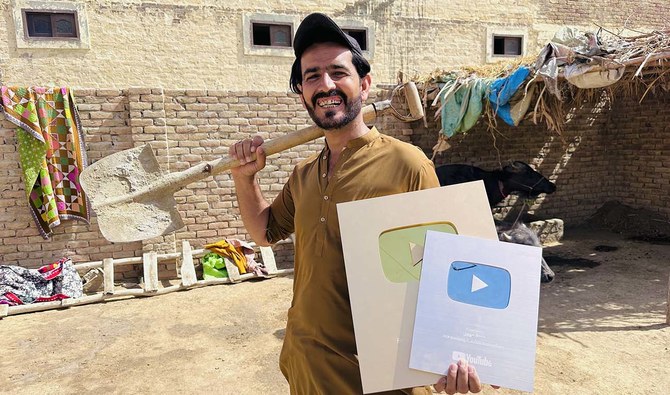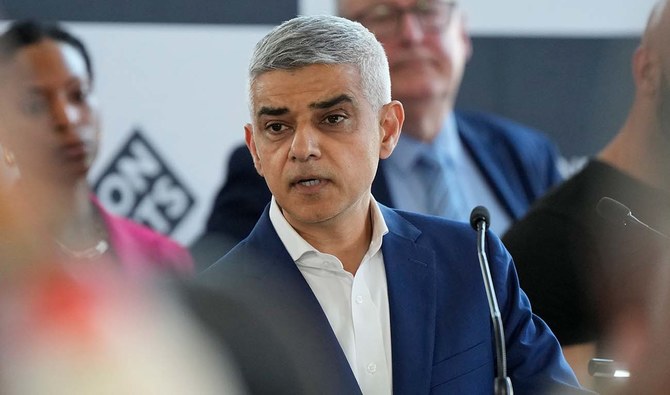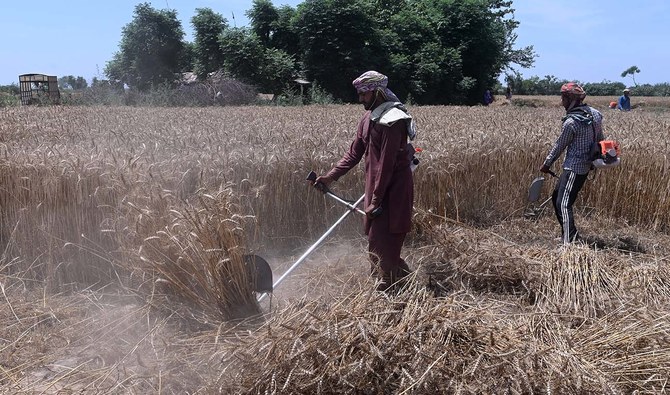ISLAMABAD: A global Internet freedom watchdog has ranked Pakistan among countries where cyber freedom has been declining and raised alarm about new plans to regulate social media, putting it on a list of nations where people were arrested and convicted over social media posts.
In its report titled ‘Freedom on the Net 2021: The Global Drive to Control Big Tech,’ Freedom House, a Washington-based advocacy group, ranked different countries with regard to cyber freedom.
The watchdog cited examples of countries that used data sovereignty as an excuse for surveillance. In some cases, it said, such data localization requirements had been introduced in the context of content regulation, highlighting Pakistan where the government proposed new regulations for Internet users and service providers.
“Pakistan’s proposed Removal and Blocking of Unlawful Online Content (Procedure, Oversight and Safeguards) Rules, the latest version of which was published in November 2020, outlines requirements for social media companies to establish one or more data servers in the country,” Freedom House said.
The watchdog expressed concern over the proposed rules, which it said could negatively impact social media users and companies.
“Pakistan’s proposed rules have raised alarms about their impact on end-to-end encryption,” the report read. “The draft requires social media companies and service providers with more than 500,000 users to hand over personal data in a decrypted and readable format when requested by the Federal Investigation Agency.”
The Internet freedom watchdog found Pakistan among 24 countries that initiated measures governing how platforms treated content, and among 38 nations where authorities pursued reforms affecting companies’ management of data.
It was also among the countries where authorities investigated, arrested or convicted people for their posts on YouTube, Twitter and TikTok.
In its key findings, Freedom House said that Internet freedom had declined globally for the 11th consecutive year, with the greatest deterioration documented in Myanmar, Belarus and Uganda, where state forces cracked down amid electoral and constitutional crises.
“Authorities in at least 48 countries pursued new rules for tech companies on content, data, and competition over the past year,” it said.
“With a few positive exceptions, the push to regulate the tech industry, which stems in some cases from genuine problems like online harassment and manipulative market practices, is being exploited to subdue free expression and gain greater access to private data.”
The report noted that free expression online was under unprecedented strain and more governments had arrested users for nonviolent political, social, or religious speech than ever before.
Officials suspended Internet access in at least 20 countries and 21 states blocked access to social media platforms, according to the report. Authorities in at least 45 countries were suspected of obtaining sophisticated spyware or data-extraction technology from private vendors.
The Washington-based advocacy group ranked China as the “worst environment for Internet freedom” for the seventh year in a row.
“Chinese authorities imposed draconian prison terms for online dissent, independent reporting, and mundane daily communications,” it said. “The COVID-19 pandemic remains one of the most heavily censored topics. Officials also cracked down on the country’s tech giants, citing their abuses related to competition and data protection, though the campaign further concentrated power in the hands of the authoritarian state.”
The report called for protection of human rights online and preservation of an open Internet through state intervention, adding that the emancipatory power of Internet depends on its egalitarian nature.
To counter digital authoritarianism, it said, democracies should ensure that regulations enable users to express themselves freely, share information across borders and hold the powerful to account.
Freedom House ranks Pakistan among countries where Internet freedom declining
https://arab.news/jw22p
Freedom House ranks Pakistan among countries where Internet freedom declining

- Pakistan among 24 countries that launched measures governing how platforms treated content, among 38 where draconian reforms pursued
- Also among countries where authorities investigated, arrested or convicted people for their posts on YouTube, Twitter and TikTok
Pakistan to face India on Oct. 6 in women’s T20 World Cup clash

- ICC Women’s T20 World Cup to run from Oct. 3-20 in Dhaka and Sylhet
- Pakistan are placed in Group A with Australia, India, New Zealand, Qualifier 1
DHAKA: England will face South Africa in the opening match of the ICC Women’s Twenty20 World Cup to be held in Bangladesh later this year, the International Cricket Council announced on Sunday.
The event will run from October 3 to 20 in the capital Dhaka and the northeastern city of Sylhet, with warm-up matches starting on September 27.
Hosts Bangladesh and the top six teams from the previous edition in South Africa — Australia, England, New Zealand, South Africa and the West Indies — qualified automatically for the tournament, with Pakistan joining them as the next best ranked team.
Ireland, the UAE, Sri Lanka and Scotland are in contention for the remaining two places, with the semifinals of the qualifying tournament being held in the UAE.
Six-times winners and current world number one Australia will play in Group A alongside India, New Zealand, Pakistan and a Qualifier 1.
Neighbours and rivals India and Pakistan will face off on October 6.
Group B will feature South Africa, Bangladesh, England, West Indies, and Qualifier 2.
“Over the last six to seven years we have seen women’s cricket grow exponentially,” ICC chief executive officer Geoff Allardice said at the announcement of the fixture list and trophy unveiling in Dhaka.
“This is going to be a very special tournament,” he added.
It will be the ninth edition of the tournament, with Bangladesh previously hosting in 2014.
From bricks to clicks, Pakistani laborer achieves fame and financial independence via YouTube videos
From bricks to clicks, Pakistani laborer achieves fame and financial independence via YouTube videos

- Riaz Ali who built homes working as a manual laborer initially began making videos on TikTok
- 30-year-old made his YouTube channel in 2022 and has since become an online sensation
SANGHAR: Riaz Ali, 34, would stack brick over brick and bond them with mortar, a thick paste of cement, water and sand, as he built homes and did other manual labor work for years in the southern Pakistani district of Sanghar.
In 2022, he started making engaging video content that included throwing and catching mortar, targeting a tall pole with a motorbike tire and some prank videos, which have not only turned the daily wager into a millionaire but also a digital sensation.
Ali, better known as Riaz Jaan, initially posted videos on TikTok after which a friend advised him to post them on YouTube. He created his YouTube channel in April 2022 which was monetized only nine months later.
He now earns 20 times more than what he used to make two years ago.
“As a laborer, my wage was Rs1,500 [per day]. In a month, I used to earn Rs30,000 or Rs35,000 ($107-$125) as it was an inconsistent livelihood,” he told Arab News on Thursday.
“From YouTube, I earn more than Rs500,000 ($1,795) per month.”
Ali, who has 1.9 million subscribers on YouTube, 439,000 followers on TikTok and 359,000 on Facebook, says his content went viral through YouTube Shorts — vertical videos that have a duration of 60 seconds or less.
“My first earnings on YouTube were Rs800,000 ($2,872). I had never seen such a huge amount of money before. My family and I were so delighted that such a significant sum had come into my hands,” he said.
“After YouTube, my life changed. As they say, when Allah gives, He gives abundantly.”
Ali, who started working as a daily wager in 2010, has left his laboring job since becoming a digital sensation but still makes videos related to his former work.
He has also enabled the sharing of his viral videos on YouTube, helping several other content creators have engagement on their channels.
“There are people from various countries who repost my content and videos on their channels, and their channels have also been monetized,” he said. “I have granted them permission.”
This success has helped Ali buy two residential plots and two buffaloes, send his children to better schools, and take care of his family in a much better way. The 30-year-old has also bought a mobile phone worth Rs500,000, which he uses to create quality video content.
But Ali has not kept his success to himself and has passed his digital skills on to his family, friends and whoever he found willing to learn.
“Besides myself, my brother also has a YouTube channel where he posts labor-related videos. His channel has also been monetized,” he told Arab News.
“Additionally, I have two sons, Ali Ayan and Zeb Zohan, whose channel is also monetized.”
He says neither his brother’s nor his sons’ channels gained traction in the beginning and so, he began posting his content on their channels, which helped them gain momentum. Consequently, both channels were monetized.
The 30-year-old offers free, informal consultancy services to youth, who are interested in establishing their own YouTube channels, in his hometown of Jhol in Sanghar. He says he has around 50 to 60 youngsters, who either have monetized channels or are actively working toward them.
“I guide them all, and they follow my directions,” Ali said.
Ali Raza, a farmer and a friend of Ali, got inspired by seeing his friend earn through YouTube. Raza created his own account on the video-sharing website, where he posts funny videos.
“Since Riaz Jaan is teaching others, I also joined his group. It’s been four months since my YouTube channel has been monetized,” Ali Raza told Arab News.
“I earn between Rs25,000 and Rs30,000 ($89-$107) per month.”
Pakistan’s PM Sharif congratulates Sadiq Khan on winning third term as London mayor

- Sadiq Khan secured historic third term in office as London mayor on Saturday
- PM Sharif says Khan’s third victory reflects his dedication to public service
ISLAMABAD: Prime Minister Shehbaz Sharif congratulated London Mayor Sadiq Khan on Sunday for winning a third consecutive term in office, saying the landmark victory reflected the British-Pakistani official’s dedication to public service.
Khan, 53, who was first elected in May 2016, beat his Conservative rival Susan Hall by more than 276,000 votes, with his win representing a swing of 3.2 percent to the Labour party. He won nine of the 14 constituencies, results showed on Saturday.
Taking to social media platform X, Sharif offered his heartiest felicitations to Khan for his “hattrick” of victories.
“As a hard-working British Pakistani, he not only raised the head of his parents high but also made every Pakistani to rejoice his victory with pride,” Sharif wrote.
He offered Khan best wishes for his future success as mayor of London.
“The prime minister further said that his re-election for the third term also indicated his popularity and his devotion to public welfare,” the Pakistani prime minister wrote.
Khan, who replaced Boris Johnson as London mayor in 2016 and who has widespread policing and budget powers, has been an increasingly divisive figure in the past few years regardless of the facts for or against, particularly in the suburbs, where he fared worse than in the inner city.
His supporters say he has multiple achievements to his name, such as expanding housebuilding, free school meals for young children, keeping transport costs in check and generally backing London’s minority groups. His critics say he has overseen a crime surge, been anti-car and has unnecessarily allowed pro-Palestinian marches to become a regular feature at weekends.
With inputs from AP
Naila Kiani becomes first Pakistani woman to summit world’s fifth-highest mountain

- Naila Kiani summitted 6,485-meter high Mount Makalu in Nepal on Sunday morning, says Alpine Club of Pakistan
- Kiani’s latest achievement makes her first and only Pakistani woman to summit eleven peaks higher than 8,000 meters
KHAPLU, GILGIT BALTISTAN: Dubai-based mountaineer Naila Kiani has become the first woman from Pakistan to summit Mount Makalu, the fifth-highest mountain in the world, the country’s leading non-governmental organization promoting mountaineering said on Sunday.
Mount Makalu is located in the Mahalangur range of the Nepal Himalayas, southeast of Mount Everest. The imposing mountain stands at 8,485 meters (27,838 feet) high. Kiani’s latest achievement makes her the first and only Pakistani woman to summit eleven peaks higher than 8,000 meters.
She has previously summited Broad Peak (8,047 meters), Annapurna (8,091 meters), K2 (8,611 meters), Lhotse (8,516 meters), Gasherbrum 1 (8,068 meters), Gasherbrum II (8,035 meters), Nanga Parbat (8,125 meters), Mount Everest (8,849 meters), Manaslu (8,156 meters) and Cho Oyu (8,201 meters).
“Congratulations, Nail Kiani has summited Makalu,” Karrar Haidri, the secretary general of the Alpine Club of Pakistan, told Arab News over the phone.
“So far out of 14 eight-thousanders, she has completed the 11th peak. She summited the peak at 8:50 am local time,” he added.
The Alpine Club said in a separate statement that Naila was grateful for all the prayers and wishes she had received from people, thanking Sherpa Gelgen Dai from Imagine Nepal, a company that promotes mountain trekking and peak climbing in Nepal.
“This latest success highlights her exceptional endurance and determination,” the statement said. “She now holds the record as the fastest Pakistani, both male and female, to have summited 11 of the 8,000-meter peaks, accomplished in under 3 years.”
Kiani is a Pakistani banker living in Dubai and a mother of two. She garnered fame in 2018 after her wedding photos from K2 basecamp were widely shared on social media. The Pakistani climber received the Sitara-e-Imtiaz, Pakistan’s third-highest civilian award, in March this year for climbing Mount Everest.
“We are proud of the inspiration created by Naila, not only for her daughters and wider family but across the nation from every household,” Khalid Raja, Kiani’s husband, told Arab News over the phone.
Supporting his wife’s expeditions, Raja said it gets challenging for him at times to look after their children when Kiani is away.
“If Naila completes 14 of the world’s 8,000-meter peaks, then we hope she can reduce the levels of time that she is away from her family and we can build together from there,” he said.
“Then who knows, maybe I can do a few expeditions of my own.”
PM Sharif forms committee to resolve Pakistani wheat farmers’ grievances

- Farmers are demanding government stop wheat imports that have flooded markets, leading to reduced prices
- Government committee to take measures to address farmers’ complaints within four days, says state media
ISLAMABAD: Prime Minister Shehbaz Sharif this week formed a government committee to address the ongoing wheat crisis in the country, state-run media said, amid protests by thousands of farmers who say they are facing difficulties in selling and buying the food grain in Pakistan.
Farmers in Pakistan’s most prosperous Punjab province are demanding the government stop wheat imports that have flooded the market at a time when they expect bumper crops. The import of wheat in the second half of 2023 and the first three months of 2024 has resulted in excess amounts of the commodity leading to reduced prices, they say.
“Prime Minister Shehbaz Sharif on Saturday taking notice of the issues faced by the farmers in selling their wheat and obtaining wheat bags, formed a committee under Ministry of National Food Security and Research to address their grievances,” the state-run Associated Press of Pakistan (APP) reported.
Sharif issued the directives to form the committee during a high-level meeting he chaired on Saturday to review wheat procurement matters through the Pakistan Agricultural Storage and Services Corporation (PASSCO). The meeting was attended by federal ministers Rana Tanveer Hussain, Attaullah Tarar, and other officials.
The committee would take measures to address farmers’ concerns within four days, APP said, adding that Sharif expressed concerns over reports of farmers facing difficulties in buying wheat at “fair” prices and tasked authorities to resolve the issue immediately.
“The federal government, through PASSCO, is procuring 1.8 million metric tons of wheat to ensure maximum benefit to farmers,” the APP quoted Sharif as saying.
“The prime minister emphasized that the government will not compromise on the economic protection of farmers and will take all necessary steps to ensure their well-being.”
Agriculture is the backbone of Pakistan’s economy and constitutes its largest sector. The majority of Pakistan’s population, directly or indirectly, depends on agriculture for their income.
According to the Pakistan Bureau of Statistics (PBS), agriculture contributes about 24 percent of the Gross Domestic Product (GDP) and accounts for half of the employed labor force in the country.










